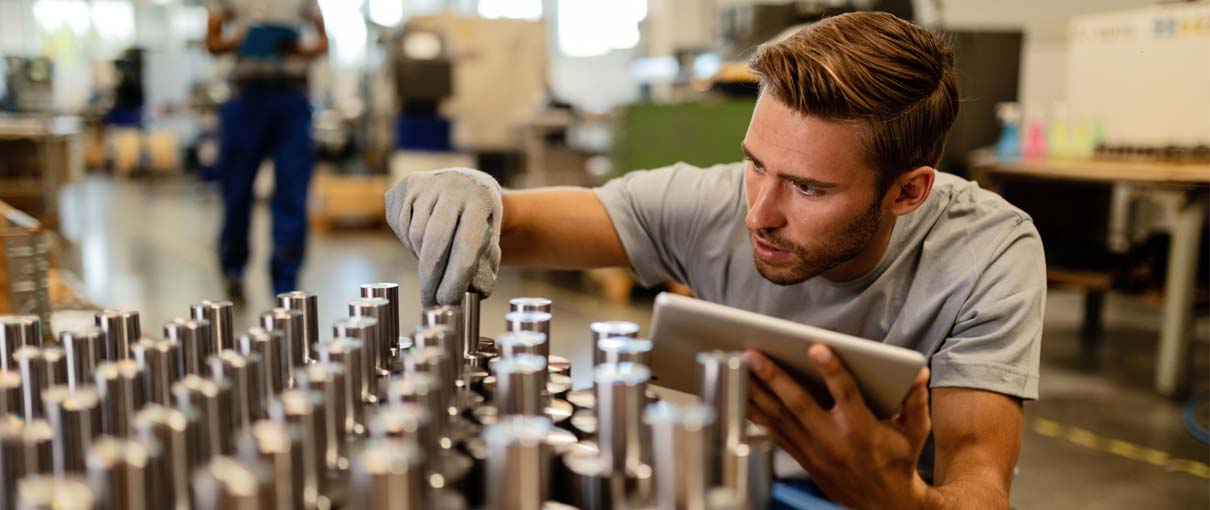Understanding The Difference Between Quality Control And Quality Assurance
As with any manufacturing process, quality assurance and quality control are essential in delivering quality products. Every goal-oriented...

As with any manufacturing process, quality assurance and quality control are essential in delivering quality products. Every goal-oriented company must incorporate the best test methods to analyze their inputs and give a quantitative analysis of the final product with supportive evidence in detailed test results. In the manufacturing of fasteners, these two aspects go hand in hand with the goal of offering a product that meets a client's specifications.
There is always a confusion regarding the definition of Quality Control (QC) and Quality Assurance (QA). These two terms have been used interchangeably by many without a clear disparity, but the fact is that, although they are used together in most cases, they serve a different purpose in every process. So let’s define both terms, the disparities between each other, and their importance.
Quality assurance is a process outlined by the management where its objective is to offer an assurance that the project or service being expected at the end of the manufacturing cycle meets the stipulated requirements as per the client's needs. It gives a clear direction that the expected product will be ready for use as designed.
Quality control is a mechanism of maintaining standards in manufactured products by testing a sample of the output against the specification. All the product details are thoroughly checked for quality control to identify whether there is quality in all the stages of product production. Essentially, the primary key objective of quality control is to check the existence of any defect and fix it appropriately.
Going with the definitions, it is now clear that there are clear differences between the two, making them serve separately in every manufacturing process.
The main objective of quality assurance is to ensure that any defect or mistake is prevented. For quality control, the objective is to ensure that any fault is fixed.
Quality assurance uses a preventive technique that is proactive. Quality control adopts a corrective strategy and reactive measures.
Quality assurance is focused mainly on the processes, which means that it is directly linked to the step-by-step and planned stages involved in processing the product. Quality control, on the other hand, puts emphasis on the product. It links the operational activities together with the inspection methods for a detailed check to ensure the stated quality requirements are adhered to.
It’s important for fastener manufacturers to maintain a high level of quality control and quality assurance. Here’s why.
Fasteners require quality assurance and quality control in order to meet clients' needs effectively and efficiently. With increased market competition, the only differentiator can only be the quality of almost all products and services. With quality control and quality assurance in place, they build a successful business that delivers products that meet or exceed customers' expectations.
Product quality is now being reflected by the standard symbol. Customers are now focused on purchasing their products from certified manufacturers. Having complied with required standards such as ISO is crucial as consumers get better quality products as a result of quality control.
Quality assurance and quality control develop and encourage quality consciousness in the company. Workers and other staff are able to have a clear picture of the product requirements and the operating procedures. This is very important as it guides achieving the desired level of quality in the product.
Reduce Waste and Cut Costs
Every manufacturing company works very hard to reduce waste as much as possible because waste is expensive. Without quality control and assurance, there are a lot of materials that go to waste. The worst-case scenario is where you will need to throw away a finished product — having quality assurance and quality controls in place will ensure efficiency and effectiveness in your production process.
Assume your company manufactures fasteners and there are no quality assurance nor quality control mechanisms in place; you might end up manufacturing bolts or screws that are substandard. This may eventually lead to an injury and lead to expensive liability claims and lawsuits. Ensuring customer safety saves your business money and averts damage to your reputation.
In the process of ensuring quality management, the role of both quality assurance and quality control is vital. QA puts emphasis on identifying the defect, whereas quality assurance is all about adhering to specified processes. Quality assurance offers high-level confidence that the team will create the expected product which fulfills the requirements. Quality control is the follow-up activities done to verify that the designed products conform to the specified requirements.
Big Bolt's quality assurance department performs dimensional and physical testing in-house, from tensile and hardness testing to a full level III PPAP. Big Bolt makes the best fasteners in all categories and guarantees timely deliveries. Get in touch today for help with your next project.
As with any manufacturing process, quality assurance and quality control are essential in delivering quality products. Every goal-oriented...
A fastener plays a vital role in the construction of different everyday objects. From DIY to megaprojects, fasteners are used to hold or...
So, you want bespoke fasteners? You’ve narrowed down your list of manufacturing tasks and are ready to get estimates. But how do you ensure...
